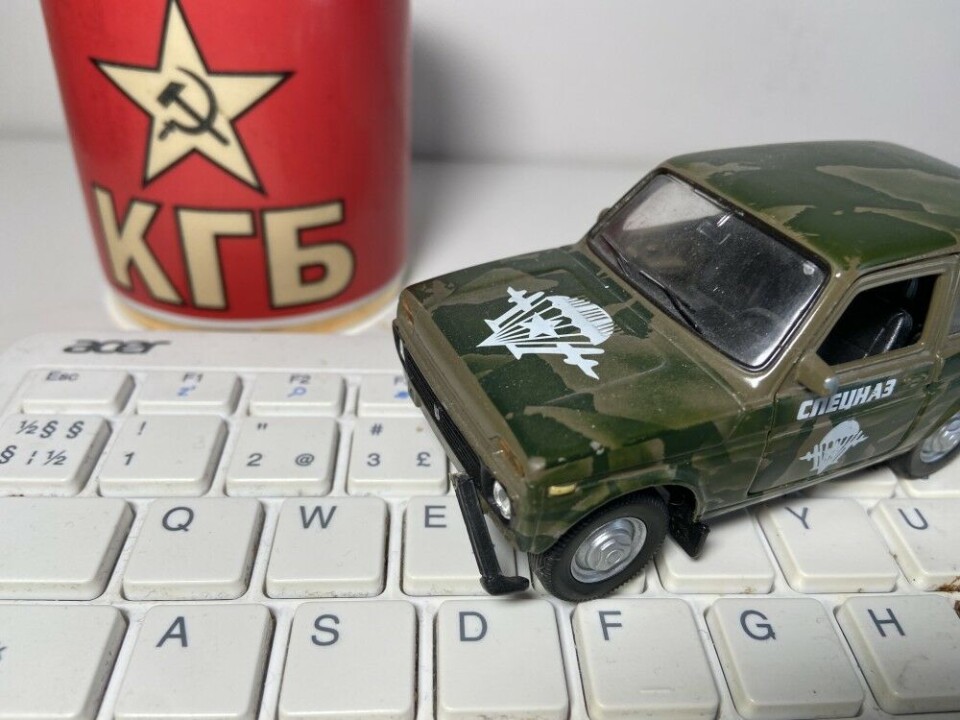
Russian cyber attacks, espionage pose growing threat to Finnish national security
Hybrid attacks and unlawful intelligence operations conducted by Russia are the biggest threats to Finnish national security, according to the Finnish Security and Intelligence Service Supo.
The agency on Tuesday said Russia may attempt to influence the public and political debate around Finland’s potential membership in Nato.
“Finnish society as a whole should be prepared for various measures from Russia seeking to influence policymaking in Finland on the Nato issue,” Supo Director Antti Pelttari said. “Public authorities must secure the conditions for a full and frank debate without intimidation, and ensure that outsiders are unable to influence security policy decisions made by Finland.”
Supo said it had not observed any significant changes in Russia’s operations targeting Finland. The agency’s report, however, added that the situation “may change very quickly”.
“Supo considers it likely that Russia will expand its cyber and information operations from Ukraine to the West. An increase in operations targeting Finland is therefore also considered probable in the coming months,” Pelttari said, adding that Russia’s invasion of Ukraine will impact the security of Finland and Europe in both the short and longer term.
This may include, for example, attempts to influence Finnish public opinion with the use of deepfake videos distributed via social media platforms.
“The reputation of a politician or public figure may be tarnished,” Pelttari said.
It will be therefore very important that efforts are made to ensure the authenticity of such social media content.
Pelttari further pointed out that Russia often seeks to exploit the experiences of Russian citizens living in Finland, and added that it is important that the Russian minority is not subject to any form of discrimination.
“Their possible harassment plays directly into [Russian President Vladimir] Putin’s hands,” he said.
Threat of more serious attacks increasing
In its analysis, Supo noted that the majority of online cyberattacks are either denial of service attacks or the defacing of websites.
“Their perpetrators seek to give the impression of paralysing society, when in reality they do not compromise information or critical processes,” the report noted, adding that while such attacks are common for online business, the “threat of more serious cyberattacks has nevertheless also increased”.
Companies must therefore constantly ensure that the control circuitry of critical infrastructure — such as energy distribution systems — cannot be accessed directly from an openly-public network, Supo advised.
“All operators that maintain network infrastructure in Finland, such as water or heat supply, should ensure that all systems are up to date. The responsibility for this is widely shared within both the public and the private sectors,” Pelttari said.
Supo also referenced the “extreme end” of Russia’s potential tools of influence, including a number of violent acts suspected to have been planned or committed by Russian intelligence actors in the EU over the last decade.
“There is clear evidence, for example, of the operations of Russian military intelligence in destroying arsenals in the Czech Republic and Bulgaria, and of assassinations perpetrated or attempted by Russian security and intelligence services in Germany and the United Kingdom,” the report said.
Terrorist threat level remains unchanged
Supo’s 2021 yearbook, published on Tuesday, includes an updated terrorist threat assessment, which has remained at level two (elevated) on the four-level scale for the fifth consecutive year.
The intelligence agency believes the most likely source of a terrorist attack is posed by lone individuals or small groups who support far-right or radical Islamist ideology.
Representatives of ethnic and religious minorities, as well as political decision-makers, are particularly at risk of violence from far-right groups, according to Supo.
The report also noted that the proportion of minors interested or involved in terrorist activity has grown over the last couple of years. The role of social media platforms for disseminating propaganda and promoting violent activities has also increased.
“Some Finnish people also have links to Siege culture, where supporters of white supremacy incite violence and race war to bring about social collapse,” Supo’s report said.
Organised and openly far-right groups do not in themselves pose a terrorist threat, Supo added, but they do create a potential breeding ground for the radicalisation of individuals.
Supo: Radical Islam in Finland focuses on recruiting, propaganda
The activities in Finland of supporters of Radical Islamic ideology tend to focus on enabling operations such as recruiting, disseminating propaganda and raising funds, according to Supo’s report.
“The most significant capacity to engage in violent operations is found among individuals who have fought or otherwise worked for terrorist organisations in conflict zones, and those with a violent background,” Supo noted, adding that the threat of an attack by such individuals will most likely be prompted by terrorist propaganda or events that they perceive as offensive to Islam.
“Attacks by lone individuals using readily available instruments remain the most likely,” the report said.
In addition, Supo noted that the rise of the Taliban in Afghanistan during the autumn of 2021 has so far not had any impact on the level of terrorist threat in Finland, with the possibility that fighters from Finland will be drawn to a conflict in Afghanistan considered to be “unlikely” in the short term.
This story is posted on The Barents Observer as part of Eye on the Arctic, a collaborative partnership between public and private circumpolar media organizations.















